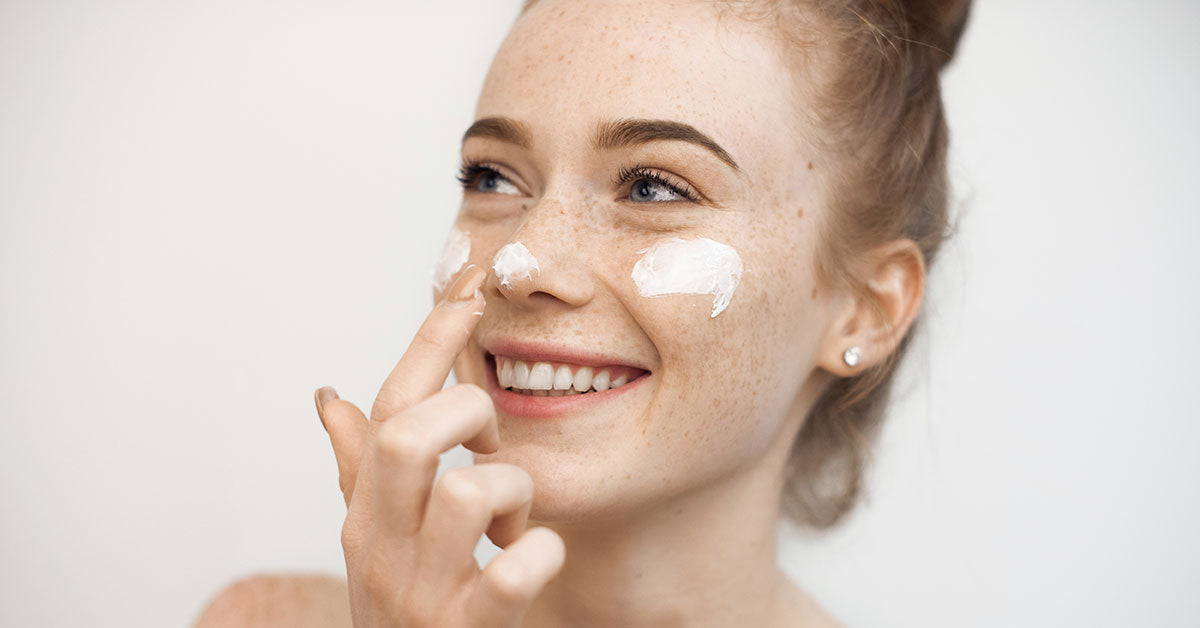You may have seen retinol creams when browsing the skin care aisle. But do you know what retinol actually is or what it can do for your skin?
What is retinol?
Very simply, retinol are vitamin A derivatives. These are used primarily as an anti-aging or acne treatment. While you can buy products with retinol, these are not the same as the prescription retinoids as prescribed by a doctor. Even though you can purchase retinol over-the-counter, you should still be aware of how it works, what it treats, and any possible side effects.
How does retinol work?
Retinol, a form of retinoid, is made from vitamin A. Instead of removing dead skin cells like many other products, tiny molecules that make up retinol go deep beneath the outer layer of skin into the dermis. As it gets to the middle layer of skin, retinol neutralizes free radicals. This boosts the production of elastin and collagen, creating a plumper look while also reducing fine lines, wrinkles, and larger pores. It doesn’t stop there - retinol also exfoliates the surface of the skin, improving texture and tone even more.
It can also treat severe acne and the scarring that can sometimes come from severe acne. By creating comedolytic agents, it keeps the pores unclogged and prevent the formation of comedones or blemishes. If you suffer from severe acne, you should see your dermatologist, who may recommend an additional antibiotic to use alongside your retinol treatment. But don’t forget, it can take up to six weeks to see improvements in your skin.
Retinol can also help to balance out the hydration levels in your skin. The mild exfoliation, as previously mentioned, removes dead skin cells that can lead to a loss of moisture. Even if you have oily skin, you can benefit from an over-the-counter retinol treatment as it can control excess production of sebum from the pores.
What does retinol treat?
Retinol is an incredibly versatile product, able to help in the treatment of:
- acne
- fine lines
- wrinkles
- age (sun) spots
- freckles
- other signs of sun damage (also called photoaging)
- uneven skin texture
- melanoma and other forms of hyperpigmentation
- large pores
For the best results, you must use your retinol product every day and it can still take as many as several weeks for any significant change.
Side Effects of Retinol
Even though retinoids like retinol are approved by the FDA, there may still be some side effects you’ll experience. The most common side effect is dry and irritated skin. This is especially common when using a new product. You may also notice some redness, itchiness, or peeling skin.
There’s no reason to panic, though. These side effects are temporary and are likely to improve within a few weeks. Sometimes our skin needs to get used to a new product. If you do experience skin irritation for a prolonged time, try a different product with a slightly lower strength.
To reduce skin irritation, try applying the retinol treatment about 30 minutes after washing your face. You can also try only applying the treatment every other day to build up your skin’s tolerance to the retinol before moving to every-day use. You may be more at risk for side effects if you use more than one retinol product at a time. Be sure to read all the product labels of your skin care products carefully to know if there is retinol hiding in there. Combining anti-aging and acne products is a common way to accidentally use more retinol than your skin can handle. And remember to apply your retinol treatment at night - retinoids have some risk of sun sensitivity.
Cautions
One of the biggest risks you face when using a retinol is sunburn. Retinol tends to dry out and irritate the skin at first and this can all be made worse by sun exposure. Be sure to wear sunscreen daily and avoid direct sun exposure as much as possible. This will not only help to avoid skin irritation from retinol, but also reduce the risk of lines, wrinkles, and dryness.
If you’re pregnant, retinol may not be the product for you. They are generally not recommended for pregnant women as they can increase the risk for birth defects and miscarriages. However, many pregnant women find they experience skin issues during pregnancy, so speak with your doctor about a solution that’s right for you. If you aren’t yet pregnant, your doctor may recommend an oral contraceptive while you use a retinol product.
Another concern is for those with eczema. Retinol can aggravate eczema symptoms so speak with your doctor before starting a retinol treatment.
As with all treatments, both prescription and over-the-counter, it’s best to bring any concern you have to your doctor. They can answer any question you have and recommend the best product for you.





